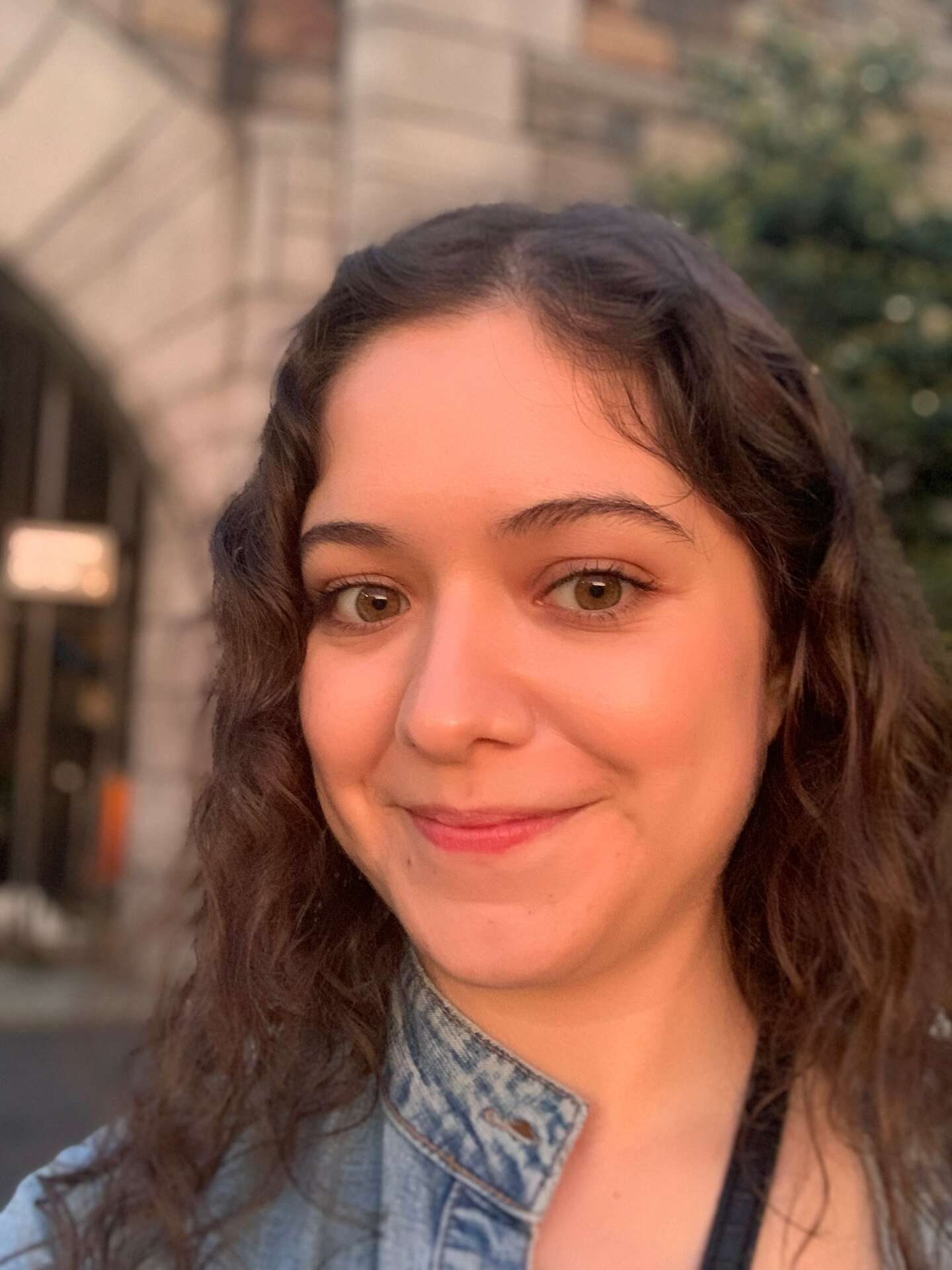We recently connected with Isabella Flores and have shared our conversation below.
Isabella, thanks for joining us, excited to have you contributing your stories and insights. Have you been able to earn a full-time living from your creative work? If so, can you walk us through your journey and how you made it happen? Was it like that from day one? If not, what were some of the major steps and milestones and do you think you could have sped up the process somehow knowing what you know now?
Thanks so much for having me! I started working in voiceover four years ago after a year and a half of training, and as much as I’ve loved the work over the past few years, this was the first year that I actually made a full-time living solely from voiceover. The fact that it only took four years makes me feel very fortunate, and in hindsight it is actually pretty clear that so many factors built on each other over time to lead me to this point. I don’t know why it makes more sense for me to work backwards chronologically, but that’s how my brain’s worked through it so…bear with me, I guess!
My two highest paying clients this past year were booked through my agent in New York and my manager in LA, each of whom started working with me because of recommendations from two separate casting directors. These casting directors are women I really looked up to (and still do, obviously) and wanted to work with for a long time, so when I felt ready I signed up for classes with them. I don’t think you should ever take a class with a casting director and expect to come out of it with anything other than new insights and hopefully the beginning of a relationship with them, because that’s really what it’s about, so I was just lucky that they saw something in me and had enough confidence in my abilities to recommend me to my reps. It’s definitely important to sign up for classes with people like casting directors and agents *when you’re definitely ready* because you learn so much from working with the decision makers, and the best way to form a relationship with them is getting to work with them in real time – if they actually recognize you and know how you work then they’ll have an easier time trusting you in the future.
Another thing that’s been pretty instrumental in making this a full-time living for me has been the connections I’ve made through networking. I kind of hate the word “networking” but that’s essentially what it is; I’ve met so many amazing friends through different VO-specific facebook groups and voiceover conferences who I talk to on a regular basis for moral support and encouragement, as well as to keep each other accountable in our businesses. Aside from encouragement and accountability, the VO community is also full of really generous people – we recommend each other for jobs often, if we’re offered something that might not be a good fit for us or if we’re not available at that time, so making friends within the industry could be directly beneficial as well. In terms of conferences, different people have different opinions: many people love conferences for the networking aspect and the opportunity to learn from successful people in the industry, others think they’re a waste of money and (in my opinion) kind of look down on the concept. I say trust your gut (but also, like…don’t be a jerk about it?), but I’ll also say that I have a client I met through VO Atlanta in 2022, and I still receive regular work from them which at this point has more than paid for my conference expenses. Also, the VOcation conference took place in Cancún last year, and this year they’re holding it in Costa Rica – it’s basically a conference *and* a vacation all in one, plus it’s a write-off for your business! So take from that what you will.
Something that was basically my main source of income when I first started working was auditioning through the “pay-to-play” websites. I personally used Voice123 and Bodalgo, and the volume of auditions I was able to submit helped me figure out my recording rhythm and led to my first experiences with remote directed sessions and even my first in-person recording session at a professional studio! The pay-to-plays are great when you’re first starting out, especially if you don’t have an agent yet, because these are jobs where you’re working directly with the clients. The downside is that you’re basically acting as your own agent so you have to make sure the jobs are paying a fair rate (I don’t know where I’d be if I didn’t have the GVAA Rate Guide to refer to) and aren’t trying to use your voice for AI training. But if you’re being vigilant about that, it can be a great source of income!
All of the things above kind of snowballed from when I first started training. I was taking the VO Dojo’s six-week intro to voiceover intensive over Zoom, and during one class one of the other students DM’d me and said “You’re in New York, right? You should join this facebook group for voice actors in NYC!” So much of what I learned about pay-to-plays, finding the best voiceover coaches and classes, troubleshooting with recording software, tips about best business practices, etc. I learned just by lurking in that one facebook group while I was still a “baby VO” taking classes, so by the time I was actually ready to start working around a year later, I had such a wealth of knowledge in addition to all the technique I’d gained from the Dojo’s program. I can’t emphasize enough how important community is in this industry; recording on your own in a little booth all day can be isolating, and it’s seriously life-changing to be connected to this community.
There are definitely certain things that probably could have sped up the process of making this a full-time career. A big one was waiting until everything was “perfect” before taking the next step. I see a lot of people do this, and I did it too, just trying to make sure my booth setup was the best it could ever be before recording a demo, or not trusting coaches who say you’re ready to start auditioning. Perfect is the enemy of good, and if you wait for everything to be perfect…you’re never going to start! I also know that I definitely could have found a whole other stream of income if I was brave enough to do direct marketing, and it’s a struggle even now! But it’s a great way to find clients if you’re consistent.
So basically, I guess the biggest factor that helped me reach a full-time living in voiceover was finding my community. Everything really grew from that. You have to find your people and be ready to learn from them and help them yourself whenever you can.
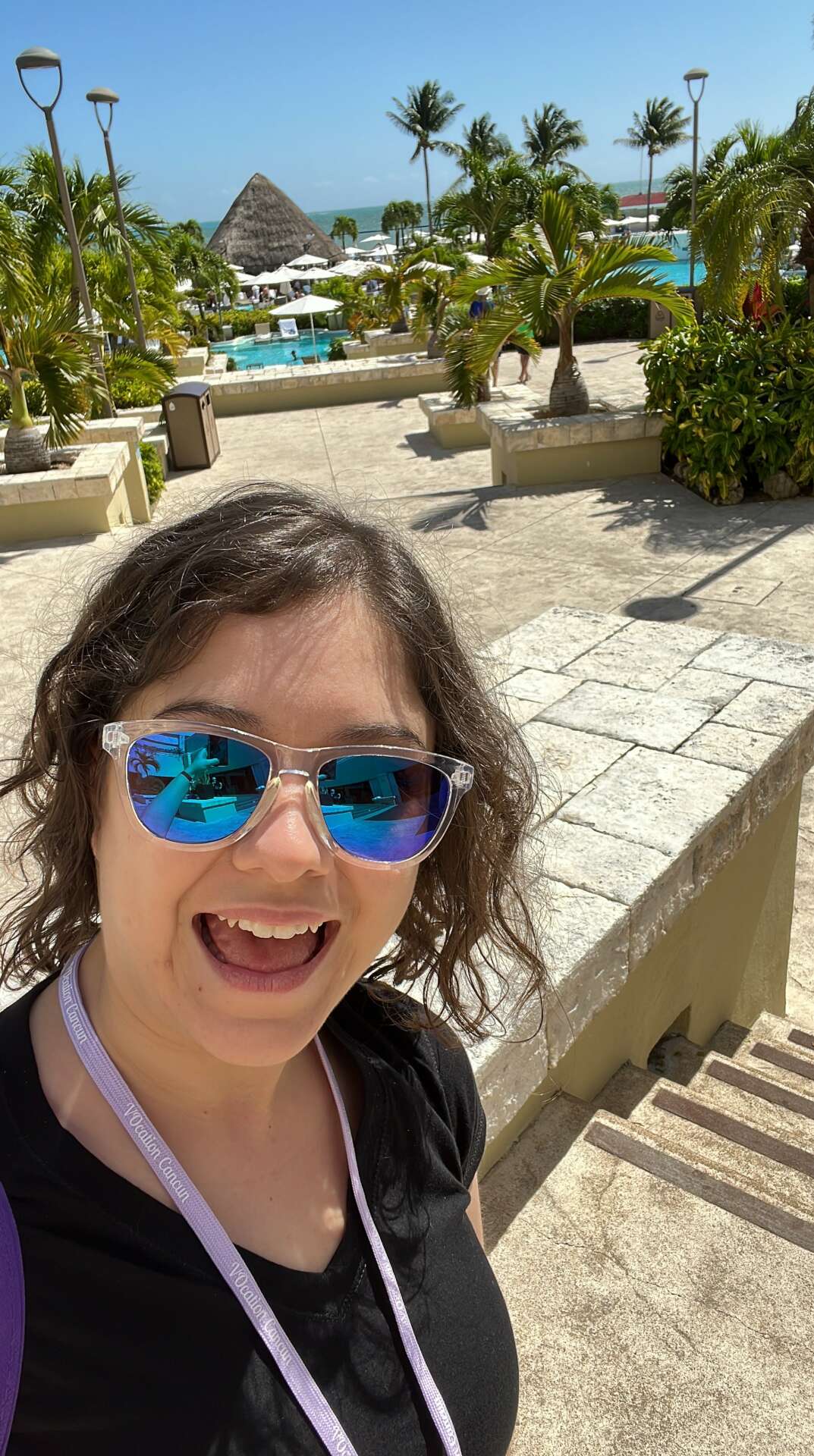
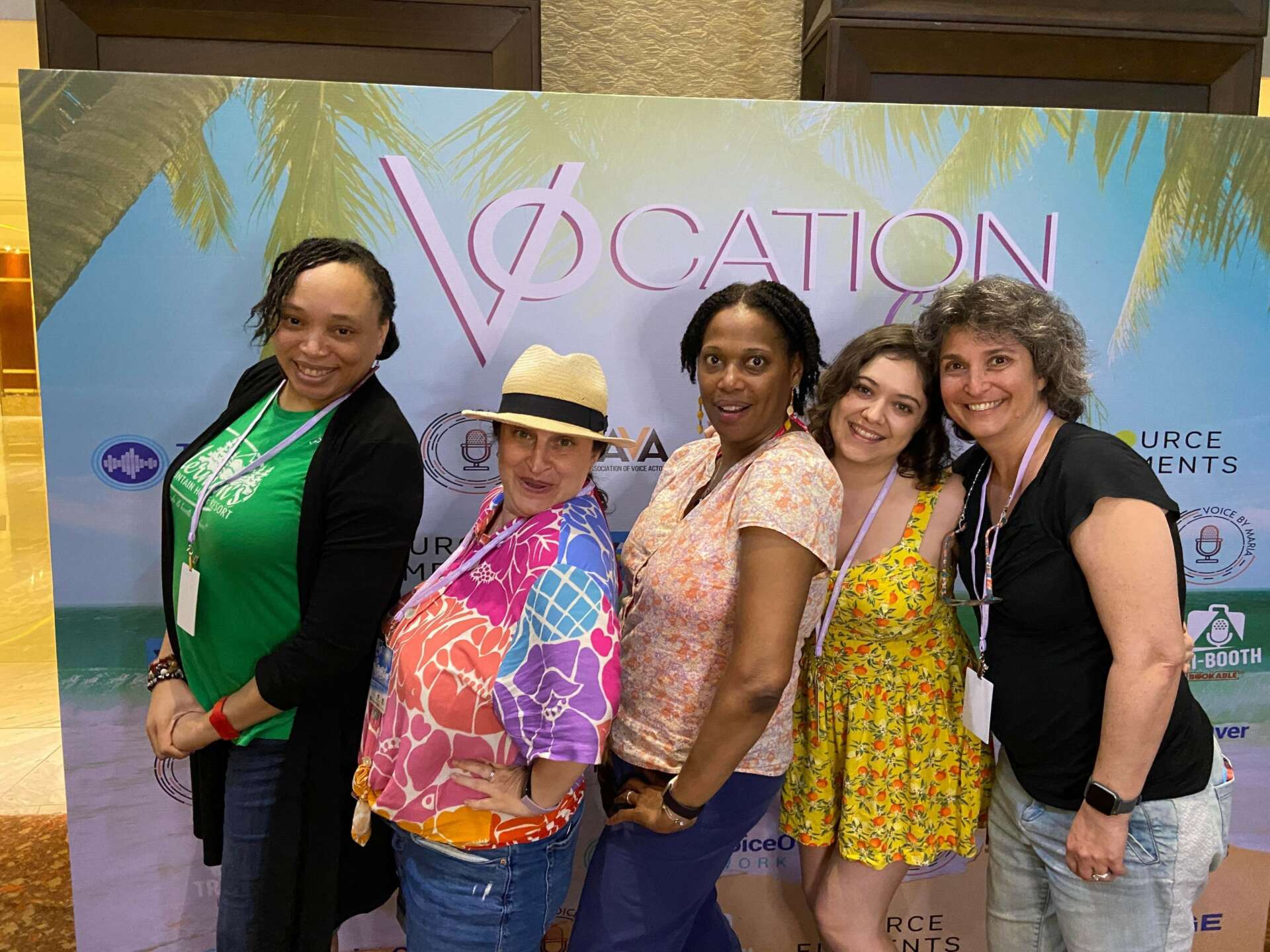
Awesome – so before we get into the rest of our questions, can you briefly introduce yourself to our readers.
I’m a voiceover artist who mainly voices commercials, but I also work in many other genres like K-12 media, explainer videos, and in-store announcements, to name a few. I’m currently one of the brand voices for Kohl’s and have commercials running for other brands like Amazon Business and Frito Lay. I’ve got a pretty conversational, “millennial”-type voice with a touch of wry humor to it – a coach once called it sarcastically wholesome, and honestly…I’m kind of a fan of that title!
I have a BFA in dance…which I used to use a lot more. But when I moved to New York, my dance background and musical theatre experience led me to start acting in small productions and short plays, until I went to an acting seminar whose sponsors included the VO Dojo. I took a beginner’s voiceover intensive through them, then went on to take their full year-long training program, and it was the best decision I ever made! I started working in VO right after I graduated from the program and have worked consistently ever since. I’ve been told that I take direction very intuitively, which is so lovely to hear and hopefully one of the reasons that my clients keep coming back! I also have a lot of improv experience, which definitely helps with multiple aspects of VO, and I love when I get to use my speed-talking skills for disclaimers and legal copy.
All of that being said, the genre that’s nearest and dearest to my heart is really children’s media. I love voicing kids’ tv promos, any interactive kids’ media, the list goes on. In fact, the moment I felt like I’d really “made it” as a voice actor was when I got to voice a talking cat in a lab coat for some Nat Geo Kids videos. I mean, what could be better than voicing a cat in a lab coat?! Nothing, that’s what!
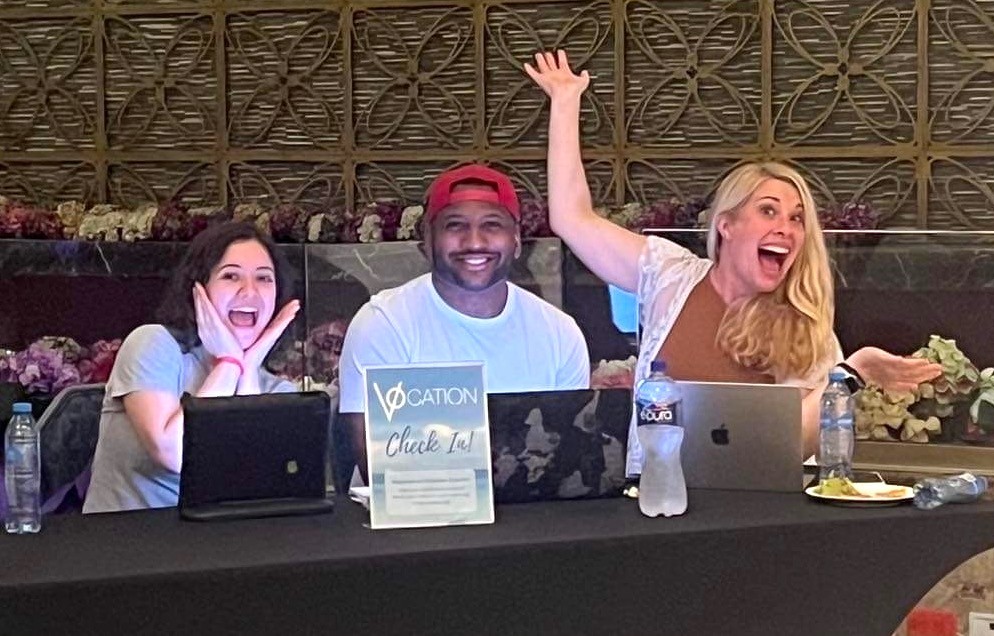
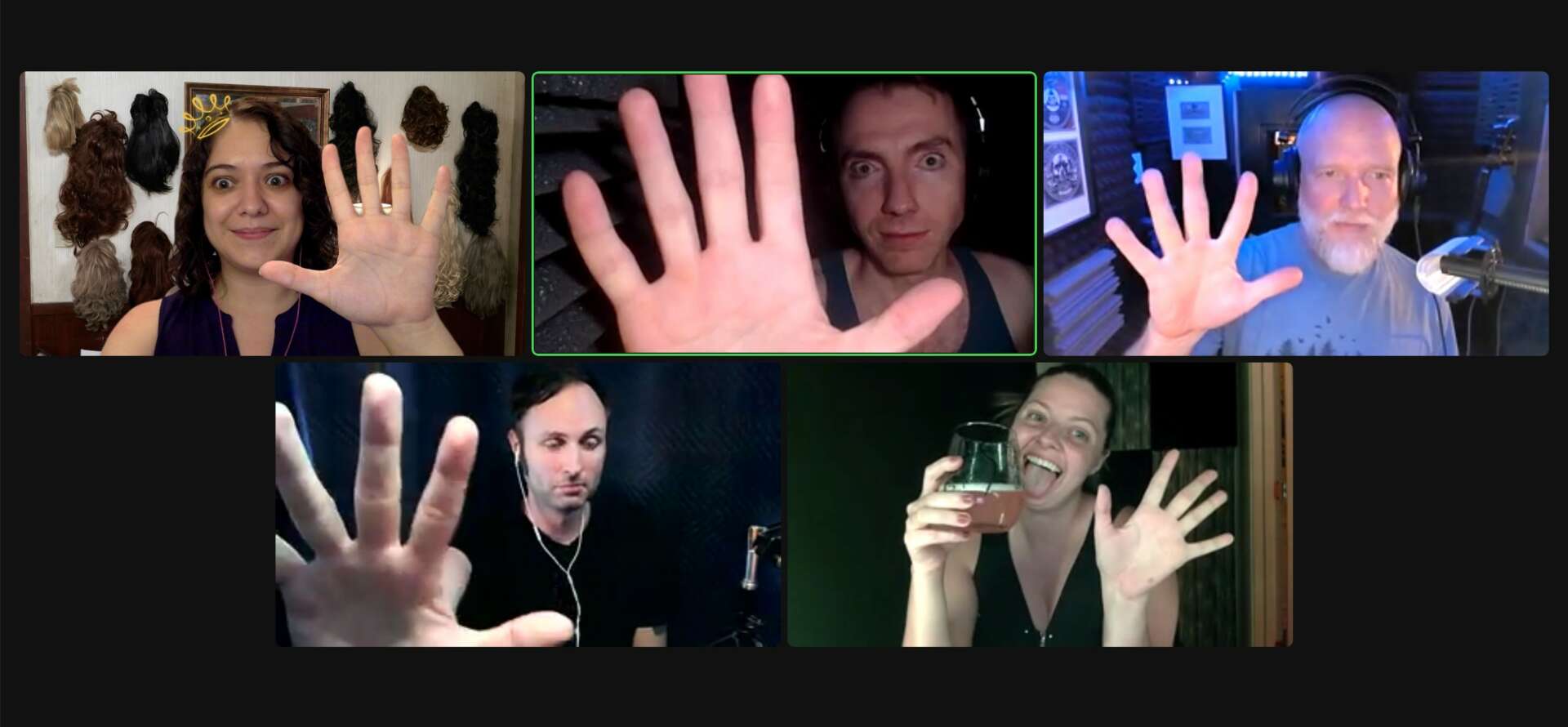
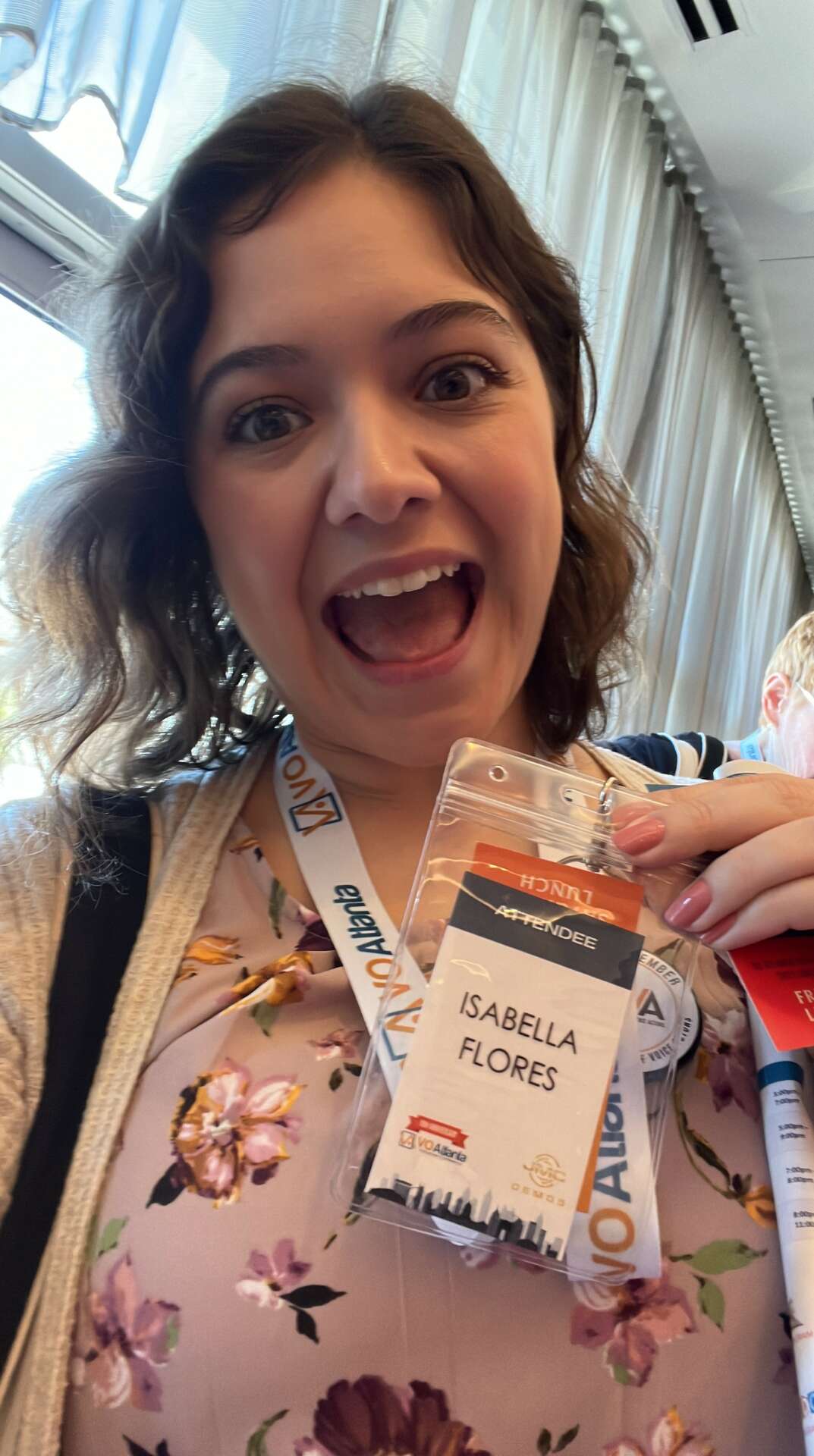
For you, what’s the most rewarding aspect of being a creative?
It’s hard to narrow it down to just one, but I would say one aspect that is very rewarding is being more in control of your work environment and schedule than you would be in a traditional career. Particularly in a situation like voiceover where you’re probably working from home 95% of the time (unless you do a lot of motion capture or anything else that requires you to go to a specific studio), you’re in charge of setting up your recording space to your specific needs and preferences, and you have flexibility on your work environment outside of your recording time as well, so there’s a level of comfort I don’t know that you could find in a traditional 9-5 job. A smaller personal reward that results from getting to work from home in my own cozy booth is that every day is Bring Your Cat to Work Day!…except when she gets a little too comfortable and starts to purr – then I have to relocate her far away from the mic!
Aside from that, I find it extremely rewarding to see the product of my collaboration with the rest of a team and to be able to share that end result with friends and family. In general, in all aspects of this career, the people I get to know are the best reward aside from the actual work, whether it be the people I work with on a project or the fellow voiceover artists I’ve met over time who have become such amazing, supportive friends.
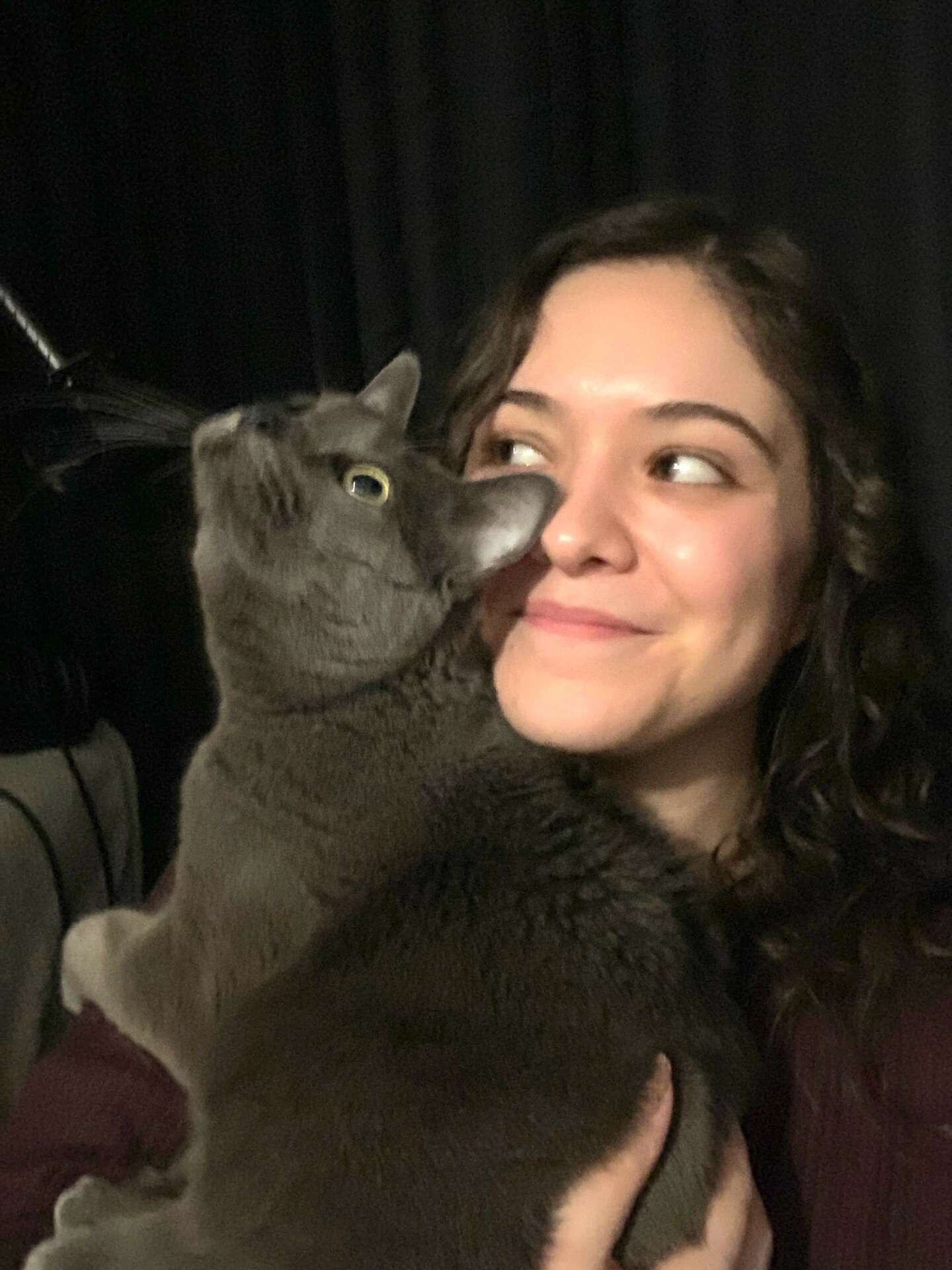
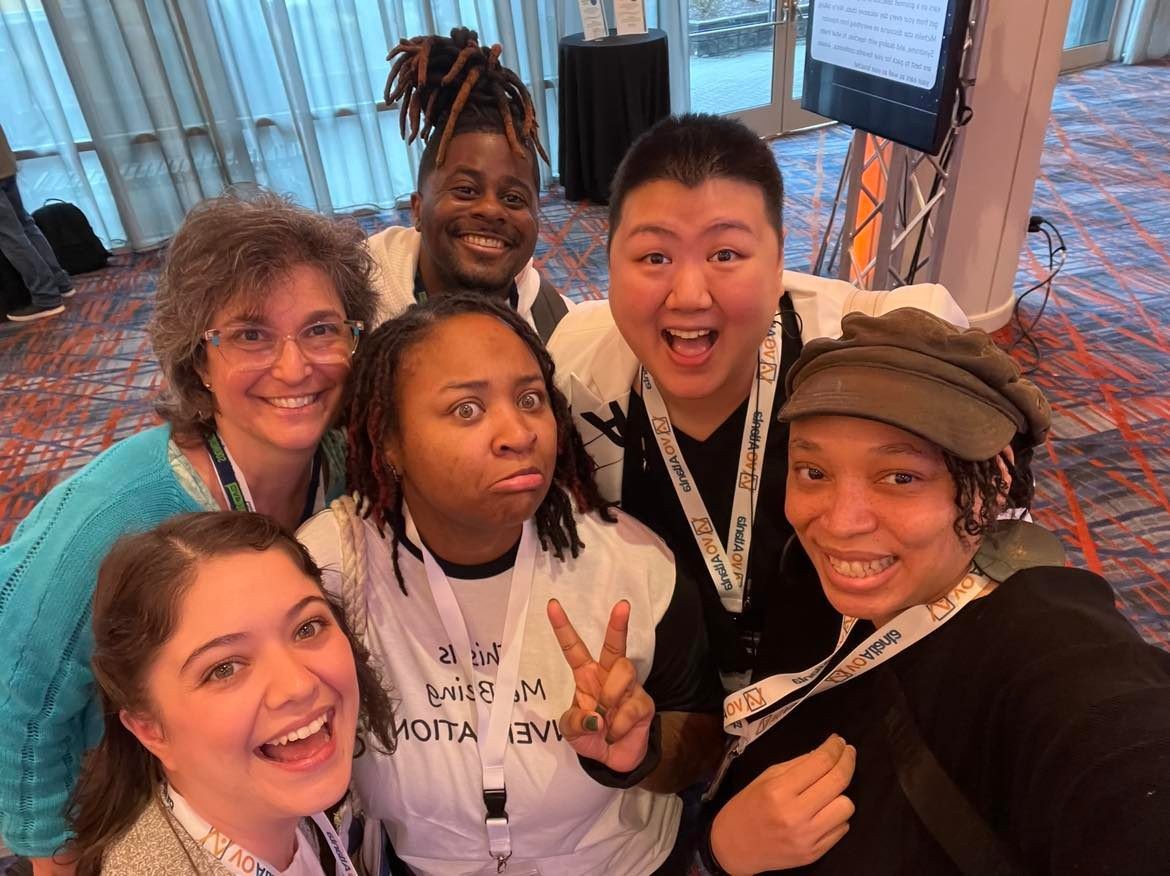
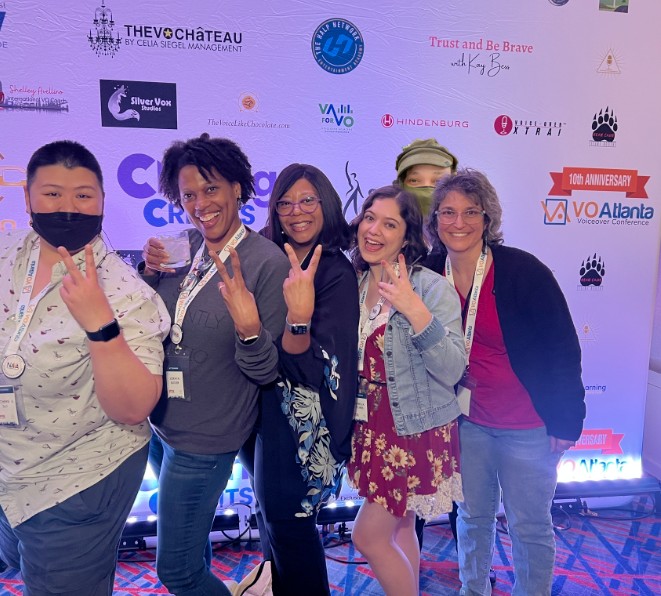
In your view, what can society to do to best support artists, creatives and a thriving creative ecosystem?
At the moment, there is a very real concern among creatives about AI in all its different forms. The use of AI in the arts will continue to be a huge threat to people in most industries, be it writers, visual artists, on-camera actors, and voice actors, as long as corporations try to cut costs however they can and society accepts the outcome of this. So I guess it’s up to everyone who consumes any sort of media and culture to refuse to accept art and media that comes from technology trained on stolen work instead of the art that comes from real human ideas and emotions and voices. And I believe that mass demand for human-made art is what will generate support for laws and regulations to be put in place by the government to protect the humans who work in these creative spaces, as well as every other industry.
Contact Info:
- Website: https://www.isabellamflores.com/
- Instagram: @missabellaaaaa
- Linkedin: https://www.linkedin.com/in/isabella-m-flores/
Image Credits
Nophi Mitchell, Cherie B. Tay, Leslie Carter


